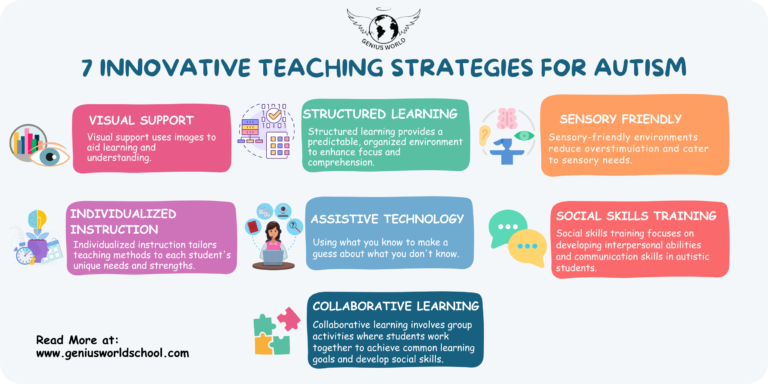Empowering Autism: Powerful Ways Autistic Individuals Can Thrive at Work!
Did you know that upwards of 85% of autistic adults are unemployed?
This staggering statistic highlights a significant barrier faced by a large and talented population. While social interaction and sensory processing challenges can create hurdles in the workplace, these individuals bring a unique set of strengths and capabilities to the table. This blog post will explore the realities of employment for people with Autism Spectrum Disorder (ASD), debunking myths and offering solutions for both autistic job seekers and employers.
What is Autism Spectrum Disorder?
Autism is a developmental condition characterized by social interaction and communication challenges, along with potential sensory sensitivities and repetitive behaviors. Individuals with it experience these traits to varying degrees.
In the workplace, these characteristics can translate into difficulties with:
- Social interactions: Interviewing, team dynamics, and navigating office politics can be challenging.
- Sensory processing: Noise, bright lights, or crowded environments can be overwhelming for some of them.
- Communication: Expressing needs clearly, understanding social cues, or adapting communication styles can be hurdles.
These challenges contribute to a significant unemployment rate among autistic adults. However, it’s important to remember that ASD also comes with unique strengths, such as:
- Focus and detail-orientation: This can be a valuable asset in tasks requiring precision and accuracy.
- Strong analytical skills: Many autistic individuals excel at problem-solving and identifying patterns.
- Honesty and directness: This can be refreshing in a workplace environment.
By creating a more understanding and supportive work environment, we can unlock their potential and foster a more inclusive workforce.
Challenges Faced by Autistic Individuals in Employment:
Navigating the Social Landscape:
The social aspects of work can be a hurdle for them. Interviewing, where success hinges on social cues and nonverbal communication, can be particularly stressful. Additionally, navigating workplace dynamics, from team meetings to casual office banter, can be challenging.
Sensory Overload:
The workplace can be a sensory minefield. Fluorescent lights, background noise, and crowded spaces can be overwhelming for some individuals with sensory sensitivities. These distractions can make it difficult to focus and complete tasks efficiently.
Communication Roadblocks:
Clear communication is essential for success in any job. However, these individuals may face challenges expressing their needs clearly, particularly in high-pressure situations. Understanding social cues and adapting communication styles to different audiences can also be difficult.
Unfamiliar Territory:
Many of them may not be aware of the support and accommodations available in the workplace. This lack of awareness can prevent them from seeking the resources they need to thrive in their positions.
Finding the Right Fit: Employment Options
The beauty lies in the spectrum – there’s a range of employment options to cater to the unique needs and strengths:
- Competitive Employment: For those who thrive with independence, competitive employment offers a fulfilling career path. With reasonable accommodations, like flexible work schedules or designated quiet areas, they can excel in various fields. Examples include data entry, computer programming, or research positions, where their focus and detail-oriented approach can be invaluable assets.
- Supported Employment: Some individuals may benefit from additional support in the workplace. Supported employment programs provide a job coach who offers on-the-job guidance and assistance. This can be a fantastic option for roles like administrative tasks or customer service, where the coach can help with social interaction and communication.
- Self-employment: For those with entrepreneurial spirits and a passion for a particular skill or interest, self-employment can be a liberating path. This allows them to leverage their unique strengths and work independently, setting their own pace and environment.
Building Bridges: How Employers Can Foster Inclusion
Knowledge is Power:
The first step is understanding. Providing basic training to employers and staff about ASD fosters empathy and creates a more inclusive work environment. Learning about the challenges and strengths of them equips everyone to work together effectively.
Crafting a Sensory-Friendly Space:
The physical workplace can significantly impact a special employee’s experience. Creating an autism-friendly environment might involve offering flexible work schedules to avoid peak sensory overload times. Designated quiet areas for focused work or breaks can also be helpful. Even small adjustments, like reducing harsh lighting or offering noise-canceling headphones, can make a big difference.
Accommodations: Empowering Success:
Reasonable accommodations are essential for them to thrive. This could involve providing clear and concise written instructions or allowing extra processing time for complex tasks. Encouraging open communication and offering alternative communication methods, like written reports or instant messaging, can ensure everyone is on the same page.
Celebrating Strengths:
Don’t underestimate the value they bring. Highlighting their strengths, such as their detail-oriented focus, exceptional problem-solving skills, or unwavering dedication to tasks, fosters a culture of appreciation. By recognizing and utilizing these unique strengths, employers can create a win-win situation for both the company and its workforce.
Resources for Building a Brighter Future
Empowering Job Seekers:
The journey to finding the perfect job can be smoother with the right resources. Here are some valuable organizations that can help autistic individuals navigate the employment landscape:
- Autism Speaks: https://www.autismspeaks.org/ – A leading advocacy organization providing resources and support for ASD job seekers, including career development tools and job boards.
- The Arc: https://thearc.org/ – This national organization champions the rights of people with disabilities, including those on the autism spectrum. Their website offers resources on employment preparation, self-advocacy, and finding support services.
- Hire Autism: https://www.hireautism.org/contact-us/ – This non-profit organization connects autistic job seekers with autism-friendly employers. Their website features a job board specifically tailored to autistic individuals and offers resume and interview preparation resources.
Building Inclusive Workplaces:
Employers who want to create a more inclusive environment for such individuals can find valuable resources at these organizations:
- The Job Accommodation Network (JAN): https://askjan.org/resources/Job-Accommodation-Network.cfm – This government-funded resource offers free guidance on workplace accommodations for employees with disabilities, including those on the autism spectrum.
- The Autism at Work Employer Toolkit: https://www.autismspeaks.org/workplace-inclusion-now – Developed by Autism Speaks, this toolkit provides employers with practical strategies for creating an autism-friendly workplace, from recruitment and onboarding to fostering a culture of understanding.
By exploring these resources and fostering open communication, both job seekers and employers can work together to build a more inclusive and empowering work environment.
Conclusion: Unlocking Potential – A World of Opportunity for All
The stereotype of ASD and unemployment can be dispelled. With understanding, support, and a willingness to embrace neurodiversity, the workplace can be a place of success and fulfillment for autistic individuals. Their unique strengths – focus, detail-orientation, and problem-solving skills – are valuable assets to any team.
For Job Seekers:
Don’t let challenges hold you back! Explore the resources provided in this blog post and discover a world of career possibilities. Remember, your unique strengths are what make you a valuable asset.
For Employers:
Learning about neurodiversity and creating an inclusive work environment is an investment in your company’s future. By embracing neurodiversity, you tap into a pool of talented individuals who can bring fresh perspectives and valuable skills to your team.
FAQs:
Is it difficult for neurodivergent people to find jobs?
Yes, unfortunately, the unemployment rate for them is significantly higher than the general population. However, with understanding and proper support, they can find fulfilling employment.
What challenges do they face in the workplace? Social interaction, sensory sensitivities, and communication difficulties can all be hurdles for autistic employees.
What are some strengths neurodivergent people bring to the workplace? Focus, detail-orientation, strong analytical skills, and a dedication to tasks are valuable assets many individuals possess.
What are some job options suitable for ASD individuals? There are a variety of options, from data entry and programming to research and self-employment, depending on individual skills and preferences.
What are “supported employment” programs? These programs offer job coaches who provide on-the-job guidance and support for autistic employees, helping them navigate workplace challenges.
What can employers do to create a more autism-friendly workplace? Offering basic training on autism, providing flexible schedules or quiet areas, and using clear communication methods are all helpful steps.
What resources are available for autistic job seekers? Organizations like Autism Speaks and The Arc offer resources and support services to help autistic individuals navigate the job search process.
What resources are available for employers who want to hire autistic individuals? The Job Accommodation Network (JAN) and The Autism at Work Employer Toolkit offer valuable information and strategies for creating inclusive workplaces.
How can autistic individuals highlight their strengths during a job interview? Focus on specific skills and past experiences that demonstrate your detail-oriented approach, problem-solving abilities, or dedication to tasks.
What if I’m an employer unsure about hiring someone with autism? Many autistic individuals are highly skilled and dedicated employees. By providing a supportive environment and embracing neurodiversity, you can unlock a wealth of talent and enhance your team.
Together, let’s unlock the potential of a truly inclusive workforce. Visit Genius World School at https://geniusworldschool.com/ to learn more about neurodiversity and how to create a thriving learning environment for all.




